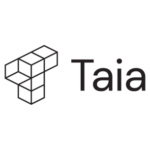Translation Services
These services are available exclusively in over 10 languages
Pre-translation
Formatting
The process of laying out the editable format of a source document in a specific software (e.g., Microsoft Word, Microsoft Power Point, PDF, etc.), allowing the Translation Department to begin the translation step.
This is necessary when the source document is scanned.
Please note that this is different to desktop publishing (DTP). The main distinction is that formatting is simply the creation of the editable format of a source document, whereas DTP consists of graphically designing the translated document.
* The rate per unit is the cost to layout one page.
Formatting
The process of laying out the editable format of a source document in a specific software (e.g., Microsoft Word, Microsoft Power Point, PDF, etc.), allowing the Translation Department to begin the translation step.
This is necessary when the source document is scanned.
Please note that this is different to desktop publishing (DTP). The main distinction is that formatting is simply the creation of the editable format of a source document, whereas DTP consists of graphically designing the translated document.
* The rate per unit is the cost to layout one page.
Translation
Simple Translation
This is a straightforward process whereby a document of any specialization is translated without being certified or sworn. It is a reliable choice whenever a document is not going to be used for official purposes.
*The rate per unit is the cost to translate one word.
Certified Translation
This is a process whereby a document is translated and certified under certain requirements that are as follows:
Simple Translation
This is a straightforward process whereby a document of any specialization is translated without being certified or sworn. It is a reliable choice whenever a document is not going to be used for official purposes.
*The rate per unit is the cost to translate one word.
Certified Translation
This is a process whereby a document is translated and certified under certain requirements that are as follows:
- A statement of the translator's qualifications.
- A statement affirming the completeness and accuracy of the document.
- Identification of the translated document and language.
- The translator's name, signature, and date.
*This is useful for documents that need a high level of certainty and reliability, but do not require a seal from a sworn translator.
*The rate per unit is the cost to translate and certify one word.
Sworn Translation
This is a process whereby a document is translated, signed, and sealed by an authorized (sworn) translator. Sworn translators are linguists who have been appointed by the legal authorities (local or federal) to provide official translations. A sworn translation has the same value as any other official documents in the eyes of the law.
This is the option whenever a document is to be used for official purposes. Below a list of the most common cases:
- Academic documents
- Diploma
- Certificates
- Academic degrees
- Academic transcripts
- Civil registry documents
- Birth certificates
- Marriage certificates
- Death certificates
- Naturalization certificates
- ID documents
- Voter registration cards
- Passports
- Driver’s licenses
- Tax identification documents
- Immunization records
- Apostilles
- Banking/Financial documents
*The rate per unit is the cost to translate, sign and seal one page.
Localization
Localization is the process of translating a website, marketing campaign or videogame to a specific audience, considering not only the target audience but also the local linguistic and cultural norms.
This is the optimal approach when targeting a specific native market.
*The rate per unit is the cost to localize one word.
Post-translation
Editing
This is the process of reviewing the work of another translator do ensure all five core components of a linguistic project are met:
- Accuracy
- Language
- Terminology
- Style
- Instructions
This is highly recommended for every translation project no matter the simplicity of the challenge, this is to guarantee that the translation complies with the client’s specifications. Additionally, every translation is treated with the same professional approach.
*The rate per unit is the cost to edit one word.
Editing
This is the bilingual review of another translator's work, which ensures all five core components of al linguistic project are met:
- Accuracy
- Language
- Terminology
- Style
- Instructions
This is highly recommended for every translation project no matter the simplicity of the challenge, this is to guarantee that the translation complies with the client’s specifications and H&V Translations' quality standards.
Additionally, every translation is treated with the same professional approach.
*The rate per unit is the cost to edit one word.
Proofreading
This is the monolingual review (in the target language) of another translator's work, which refines key aspects of the final document:
- Spelling
- Punctuation
- Line breaks
- Format
This is one of the best practices of the translation services, since this assures the quality of a project regarding the integrity of the target document.
*The rate per unit is the cost to proofread one word.
Machine Translation Post-Editing (MTPE)
This is the process of reviewing a translation generated by a machine (artificial intelligence). The revision is bilingual to refine the five core components of a linguistic project:
- Accuracy
- Language
- Terminology
- Style
- Instructions
This is highly recommended for every translation project no matter the simplicity of the challenge, this is to guarantee that the translation complies with the client’s specifications and H&V Translations' quality standards.
*The rate per unit is the cost to post-edit one word.


